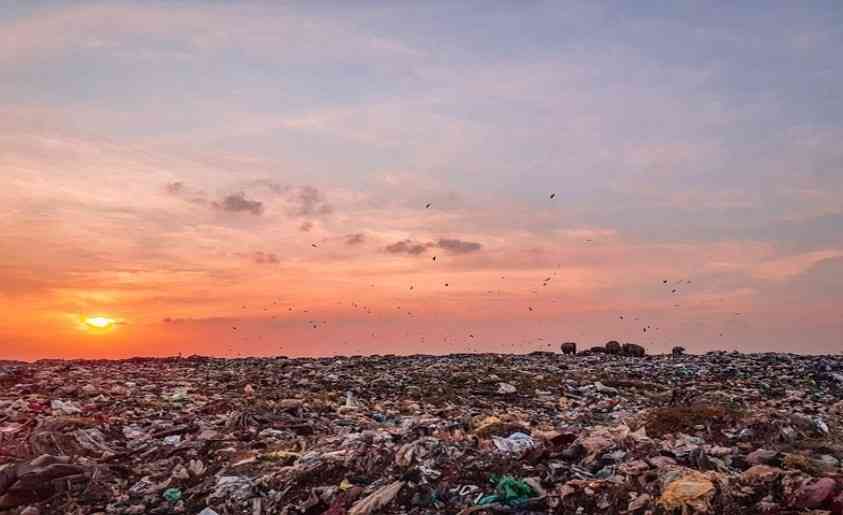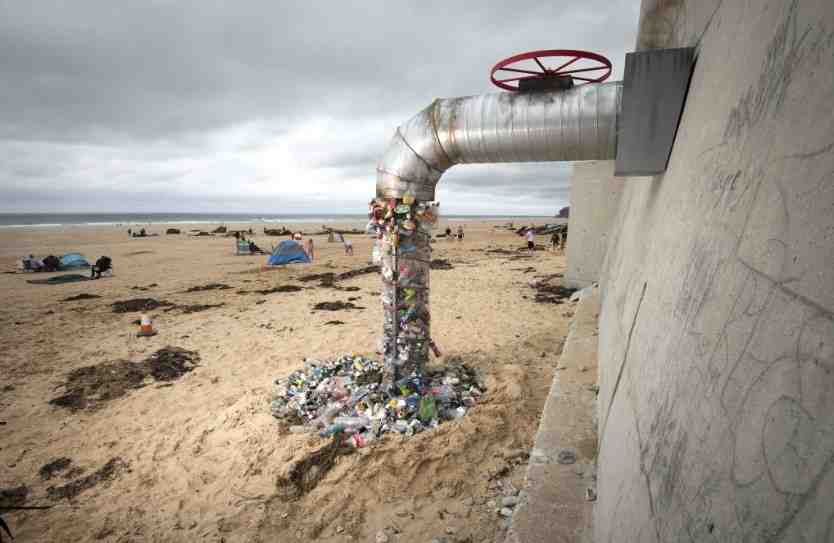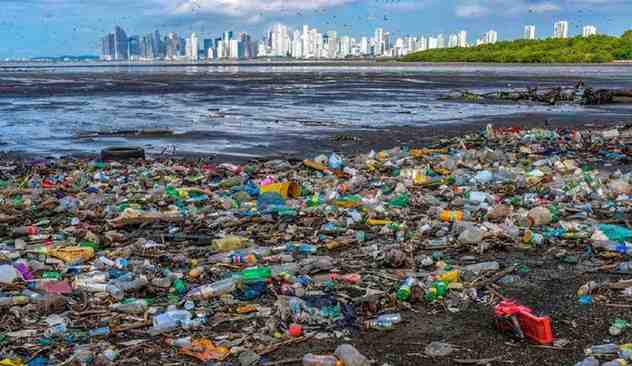Introduction
India, a rapidly developing nation with a population exceeding 1.4 billion, has become the largest contributor to plastic pollution on Earth. This staggering milestone results from many factors, including rapid urbanization, rising consumerism, and an overwhelming reliance on single-use plastics. From bustling cities to remote rural areas, plastic waste has infiltrated every corner of the country, posing severe threats to the environment and public health.
As the nation grapples with this escalating crisis, the challenge now lies in finding sustainable solutions to mitigate the environmental impact while balancing the demands of its growing economy and population.
Understanding the claim
India has now become the world’s largest plastic polluter, releasing 9.3 million tonnes (Mt) of plastic waste annually, which accounts for about one-fifth of global plastic emissions, according to a study published in the journal Nature.
The report suggests that India’s official waste generation figures, roughly 0.12 kilograms per capita per day, are likely underestimated, while waste collection rates are overestimated.
The study highlights several gaps in India’s waste data, such as the exclusion of rural areas and the informal recycling sector, as well as the widespread practice of open burning of uncollected waste, which significantly contributes to plastic pollution.
These factors exacerbate India’s growing plastic waste problem, especially as the country, now the most populous in the world, faces increasing environmental pressures.
Following India, Nigeria ranks second with 3.5 Mt of plastic emissions, and Indonesia third with 3.4 Mt. China, previously identified as the top global polluter, now ranks fourth.
The report attributes this shift to China’s considerable investment in waste collection and management infrastructure over the past 15 years, including waste incineration and controlled landfills.
Interestingly, high-income countries generate more plastic waste overall, but they do not rank among the top 90 polluters due to nearly universal collection systems and controlled disposal methods.
However, the researchers acknowledged that plastic pollution from these countries might still be underestimated, as the study excluded plastic waste exports from the analysis.
The findings are expected to inform the Global Plastics Treaty, a legally binding agreement on plastic pollution that 175 nations are set to finalize by 2024. The study offers a new baseline for countries to assess the extent of their plastic pollution and could aid in the development of targeted action plans.
Global plastic pollution: A broad perspective
The study, published in Nature, reveals that global plastic production reaches 57 million tonnes yearly. This plastic pollution extends from the deepest oceans to the highest mountaintops, infiltrating various ecosystems, including human bodies.
Over two-thirds of this pollution originates from the Global South, with significant contributions from regions where government waste management is inadequate.
Environmental Impact of Plastic Pollution
Soil Degradation and Land Contamination
Plastics that end up in landfills or are discarded improperly contribute to soil pollution. Microplastics can infiltrate the soil, disrupting nutrient cycles, and harming microorganisms crucial for soil health. As plastic breaks down, toxic chemicals can leach into the ground, further degrading soil quality and impacting plant growth.
Marine Pollution and Ocean Health
An estimated 8 million tons of plastic annually enter the oceans, devastating marine ecosystems. Marine animals, including fish, turtles, and seabirds, often mistake plastic for food, leading to ingestion or entanglement, resulting in injury or death. Microplastics have also entered the food chain, affecting both marine life and humans who consume seafood.
Threat to Wildlife
On land and in water, wildlife suffers the consequences of plastic pollution. Animals ingest plastic, mistaking it for food, or become trapped in plastic debris, leading to suffocation, starvation, or drowning. Over time, the ingestion of plastic can lead to bioaccumulation of toxins in the food chain, affecting entire ecosystems.
Air Pollution from Burning Plastics
In many regions, especially rural areas, plastic waste is burned in open spaces, releasing toxic chemicals into the air. This contributes to air pollution and poses serious health risks for humans and animals. The burning of plastics releases harmful substances like dioxins and furans, which are linked to respiratory problems and cancer.
Long-Term Environmental Damage
Plastic, especially non-biodegradable varieties, takes hundreds to thousands of years to decompose. As a result, plastic pollution is a long-term environmental problem that future generations will inherit unless drastic actions are taken now. Its persistence in the environment poses ongoing risks to ecosystems, biodiversity, and climate stability.

Economic and Social Implications
Microplastics and health risks
The study utilized artificial intelligence to focus on plastics that are improperly burned or discarded, contributing to microplastic pollution. These microplastics have been found in remote locations, such as the peaks of Everest and the Mariana Trench, and are now prevalent in human bodies. The- health implications of these microplastics are still being studied.
Impact on Tourism and Local Economies
Plastic pollution, particularly in coastal and natural areas, affects tourism by degrading the aesthetic appeal of destinations. Polluted beaches and waterways deter tourists, leading to a decline in revenue for communities that rely on tourism as a major economic driver. This can result in loss of income for local businesses, hotels, and tour operators, further exacerbating economic disparities.
Healthosts C Associated with Plastic Pollution
The presence of plastic in the environment has serious public health implications. Plastics release harmful chemicals, and when they break down into microplastics, they can contaminate water and food sources. Prolonged exposure to these chemicals, especially in developing regions with poor waste management, leads to respiratory diseases, cancers, and other health issues. Treating these health problems incurs significant costs for both individuals and healthcare systems.
Impact on Global Trade and Industry
As countries grapple with plastic pollution, many have started imposing bans or restrictions on single-use plastics. While this is a positive step for environmental protection, it poses challenges for industries reliant on plastic packaging. Companies may face increased costs in adopting alternative materials or complying with new regulations, leading to shifts in global trade patterns. However, this also presents an opportunity for innovation in sustainable materials, potentially boosting green industries.
Government Policies and Regulations
Plastic Waste Management Rules (2016)
The Plastic Waste Management Rules, 2016 were a landmark regulation aimed at addressing plastic pollution at the source. The rules introduced the concept of “Extended Producer Responsibility” (EPR), requiring manufacturers and producers of plastic products to take responsibility for collecting and recycling plastic waste. The rules also mandated stricter guidelines on plastic use, including restrictions on the thickness of plastic bags and the management of multi-layered plastics.
Ban on Single-Use Plastics (2022)
In a bold move, India imposed a nationwide ban on single-use plastics effective July 1, 2022. This ban covers a wide range of plastic products, including straws, cutlery, cups, packaging materials, and plastic sticks used in balloons and earbuds. The goal is to phase out non-recyclable items that contribute significantly to pollution. The ban encourages the adoption of alternatives such as paper, cloth, or biodegradable materials.
Swachh Bharat Mission
Launched in 2014, the Swachh Bharat Mission (Clean India Mission) is a nationwide campaign focused on promoting cleanliness and sanitation. While the mission primarily targets sanitation issues, it has also played a key role in raising awareness about plastic pollution. Through public campaigns and clean-up drives, the initiative encourages citizens to reduce plastic use, segregate waste, and participate in community-driven clean-up efforts.
Extended Producer Responsibility (EPR) Guidelines
The EPR guidelines under the 2016 Plastic Waste Management Rules were further strengthened in 2022. These guidelines require producers, importers, and brand owners to implement a system for collecting plastic waste generated from their products. The government has also set clear targets for recycling and disposal of plastic waste to ensure accountability across industries. Non-compliance can result in penalties and legal actions, pushing companies toward sustainable practices.

Call to Action and Future Outlook
India’s emergence as the world’s largest plastic-polluting nation underscores the urgent need for a comprehensive, multi-faceted approach to tackling this escalating crisis. While the country’s rapid development and growing consumer economy have driven plastic use, the environmental costs are mounting, threatening ecosystems, public health, and sustainable growth.
Addressing this challenge requires stronger enforcement of regulations, widespread adoption of plastic alternatives, and greater public participation in reducing plastic waste. With coordinated efforts from the government, businesses, and citizens, India can turn the tide on plastic pollution, ensuring a cleaner and more sustainable future for generations to come.
-BHAWNA SINGH
Must Read: LIFE SHORTENED: THE ALARMING IMPACT OF DELHI’S POLLUTION ON RESIDENT’S HEALTH


